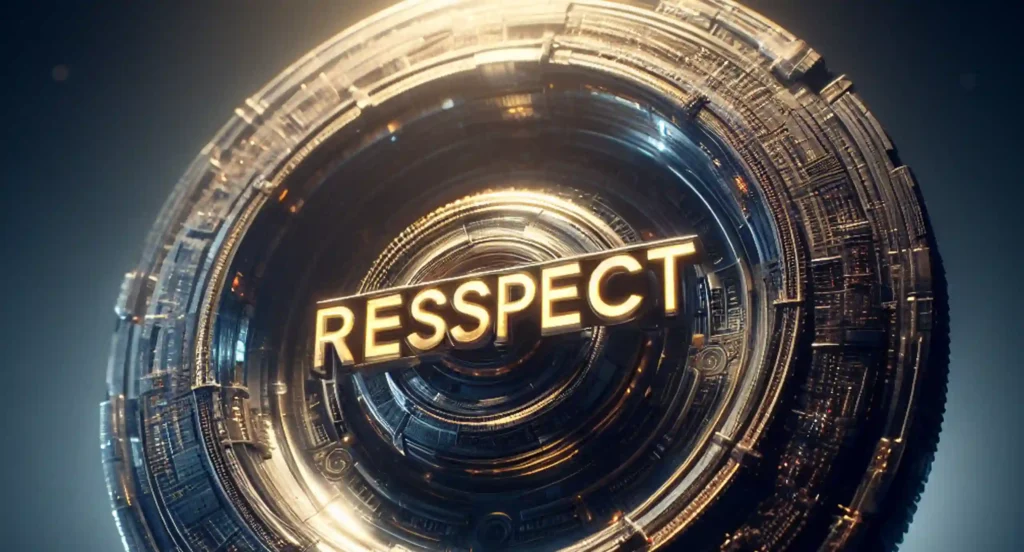🧿 Short Answer
It’s not uncommon for politics to cause tension in relationships, but it doesn’t have to ruin them. Here are some tips to help you navigate the murky waters of politics without losing the love and connection you share with your partner: prioritize open communication, set boundaries, foster empathy, and maintain respect. Remember that your relationship is more important than politics, so try to avoid discussing politics if possible. If you do discuss politics, start the conversation by looking for the good in the other person’s stance, keep your points rooted in fact, and be a willing and thoughtful listener. By following these tips, you can talk about politics without ruining your relationship.
Politics can be a touchy subject, and it’s not uncommon for disagreements to arise between partners with differing views. However, it’s important to remember that politics don’t have to ruin your relationship. In fact, with a little effort and some practical tips, you can learn to navigate political discussions with your partner respectfully and productively. In this article, we’ll explore some strategies for avoiding political arguments, as well as tips for having productive political discussions with your partner. By the end of this article, you’ll have a better understanding of how to keep politics from ruining your relationship and how to maintain a healthy and happy partnership. 😊

The Impact of Politics on Relationships
The impact of politics on relationships is a topic that has been widely discussed in recent years. Political differences can cause tension and disagreements between people, even those who are close to each other. According to a recent article by UVA Today, politics can influence people’s dating behaviours, marital patterns, and even where they choose to live.
It’s not uncommon for people to feel strongly about their political beliefs, and this can sometimes lead to conflicts with others who hold different views. However, it’s important to remember that everyone is entitled to their own opinions, and it’s possible to have healthy relationships with people who have different political views than you do.
Some experts suggest that having different political views can be beneficial for relationships, as long as both parties are willing to listen to each other and respect each other’s opinions. By engaging in open and honest communication, it’s possible to find common ground and build stronger relationships, even in the face of political differences.
So, if you find yourself in a situation where politics is causing tension in your relationships, try to approach the situation with an open mind and a willingness to listen. Remember that everyone has a unique perspective, and by working together, you can find ways to bridge the gap and build stronger relationships.

What are some common political topics that can impact relationships?
Several political topics can impact relationships, and it’s important to be aware of them. Here are some of the most common ones:
- Abortion: This is a highly controversial topic that can cause tension between people who hold different views on the matter. It’s important to approach this topic with sensitivity and respect for other people’s opinions.
- Gun control: This is another topic that can be divisive, with people holding strong opinions on both sides of the issue. It’s important to listen to other people’s perspectives and try to find common ground.
- Immigration: This is a complex issue that can be difficult to discuss, especially when people have different views on how to address it. It’s important to approach this topic with an open mind and a willingness to listen to other people’s perspectives.
- Climate change: This is a topic that has become increasingly important in recent years, and it can be a source of tension between people who hold different views on the matter. It’s important to approach this topic with an understanding of the science behind it and a willingness to listen to other people’s perspectives.
- LGBTQ+ rights: This is a topic that has gained a lot of attention in recent years, and it can be a source of tension between people who hold different views on the matter. It’s important to approach this topic with sensitivity and respect for other people’s opinions.
Remember that everyone is entitled to their own opinions, and it’s possible to have healthy relationships with people who have different political views than you do. By engaging in open and honest communication, it’s possible to find common ground and build stronger relationships, even in the face of political differences.

How to have productive political discussions with your partner?
Political discussions can be challenging, but they don’t have to be divisive. By following a few simple tips, you can have a productive conversation with your partner that strengthens your relationship. With these below tips, you can navigate political differences with ease and keep your relationship strong and healthy.
- Listen actively: When someone is expressing their political views, try to listen actively and understand their perspective. For example, if your friend is talking about their support for a particular candidate, you could say something like, “I can see why you feel that way. Can you tell me more about why you support them?”
- Respect other people’s opinions: Remember that everyone is entitled to their own opinions, and it’s important to respect them, even if you don’t agree with them. For example, if your family member expresses a political view that you disagree with, you could say something like, “I don’t agree with you, but I respect your opinion.”
- Avoid personal attacks: It’s important to avoid making personal attacks when discussing politics. Stick to the issues and avoid attacking the person. For example, if your coworker expresses a political view that you disagree with, you could say something like, “I understand where you’re coming from, but I don’t agree with that policy.”
- Find common ground: Look for areas where you and the other person agree, and try to build on those areas. This can help you find common ground and avoid disagreements. For example, if your friend is talking about their support for a particular policy, you could say something like, “I don’t agree with that policy, but I do think we need to address the issue it’s trying to solve.”
- Take a break: If you find yourself getting too worked up during a political discussion, it’s okay to take a break. Sometimes, it’s better to step away from the conversation and come back to it later when you’re feeling calmer. For example, if you’re having a political discussion with your partner and you start to feel angry, you could say something like, “I need to take a break from this conversation. Let’s come back to it later when we’re both feeling calmer.”
- Stay calm: It’s important to stay calm and composed during political discussions, even if you disagree with the other person. For example, if your friend expresses a political view that you disagree with, you could say something like, “I understand where you’re coming from, but I have a different perspective.”
- Avoid generalizations: It’s important to avoid making sweeping generalizations about people or groups during political discussions. For example, if your coworker expresses a political view that you disagree with, you could say something like, “I don’t agree with that policy, but I don’t think it’s fair to generalize about people who support it.”
- Focus on the issues: It’s important to focus on the issues at hand during political discussions, rather than attacking the other person. For example, if your family member expresses a political view that you disagree with, you could say something like, “I don’t agree with that policy, but I think we can both agree that we want what’s best for our country.”
- Use “I” statements: It’s important to use “I” statements during political discussions, rather than making accusatory statements. For example, if your friend expresses a political view that you disagree with, you could say something like, “I don’t agree with that policy, but I respect your opinion.”
- Avoid labels: It’s important to avoid labelling people during political discussions, as this can be hurtful and divisive. For example, if your coworker expresses a political view that you disagree with, you could say something like, “I don’t agree with that policy, but I don’t think it’s fair to label people who support it.”
- Be open-minded: It’s important to be open-minded during political discussions, even if you disagree with the other person. For example, if your family member expresses a political view that you disagree with, you could say something like, “I don’t agree with that policy, but I’m willing to listen to your perspective.”
- Avoid personal anecdotes: It’s important to avoid using personal anecdotes during political discussions, as this can be seen as an attempt to manipulate the conversation. For example, if your friend expresses a political view that you disagree with, you could say something like, “I don’t agree with that policy, but I think we should focus on the facts.”
- Stay informed: It’s important to stay informed about political issues so that you can engage in informed discussions. For example, if your coworker expresses a political view that you disagree with, you could say something like, “I don’t agree with that policy, but I read an interesting article about it the other day.”
- Avoid social media: It’s important to avoid discussing politics on social media, as this can be a breeding ground for arguments and misunderstandings. For example, if your family member expresses a political view that you disagree with on social media, you could say something like, “I don’t agree with that policy, but I think we should discuss it in person.”
- Know when to end the conversation: It’s important to know when to end a political conversation, especially if it’s becoming heated or unproductive. For example, if your friend expresses a political view that you disagree with and the conversation is becoming heated, you could say something like, “I think we should agree to disagree on this one.”

Never Forget: Respect is key
It’s always important to remember that respect is key in any political discussion or disagreement. Here are some tips on how to respectfully disagree with your partner:
- Listen actively: When your partner is speaking, make sure you’re listening to what they’re saying. Don’t interrupt them or try to talk over them. Instead, take the time to understand their point of view.
- Be open-minded: Try to approach the conversation with an open mind. Be willing to consider your partner’s perspective, even if you don’t agree with it.
- Avoid personal attacks: It’s important to focus on the issue at hand, rather than attacking your partner personally. Avoid using derogatory language or making assumptions about their character.
- Use “I” statements: When expressing your own opinion, try to use “I” statements instead of “you” statements. For example, instead of saying “You’re wrong,” say “I see things differently.”
- Find common ground: Look for areas of agreement between you and your partner. Even if you don’t agree on everything, finding common ground can help you build a stronger relationship.
Remember, it’s okay to disagree with your partner. It’s healthy to have different opinions and perspectives. But it’s important to do so respectfully and constructively. Good luck! 😊

